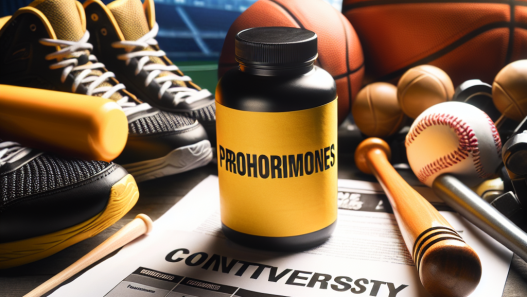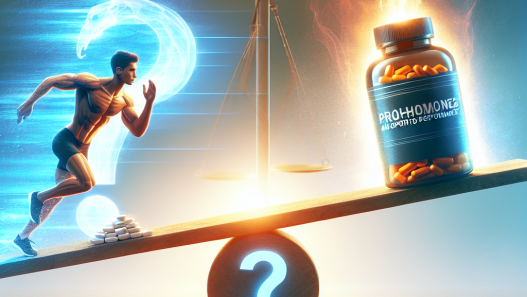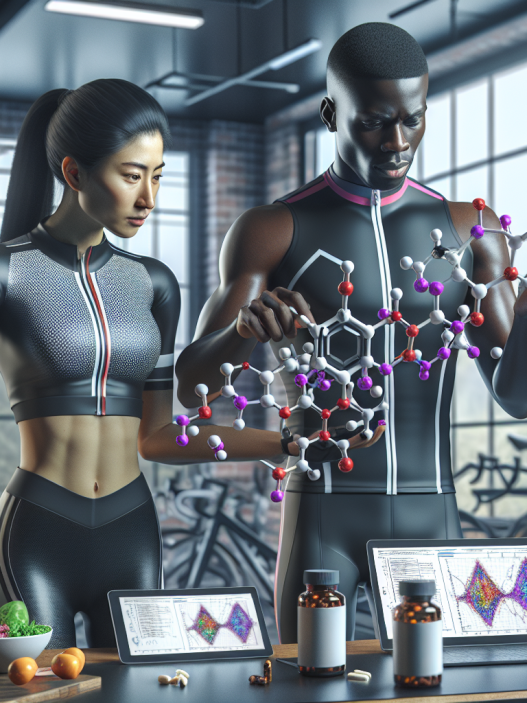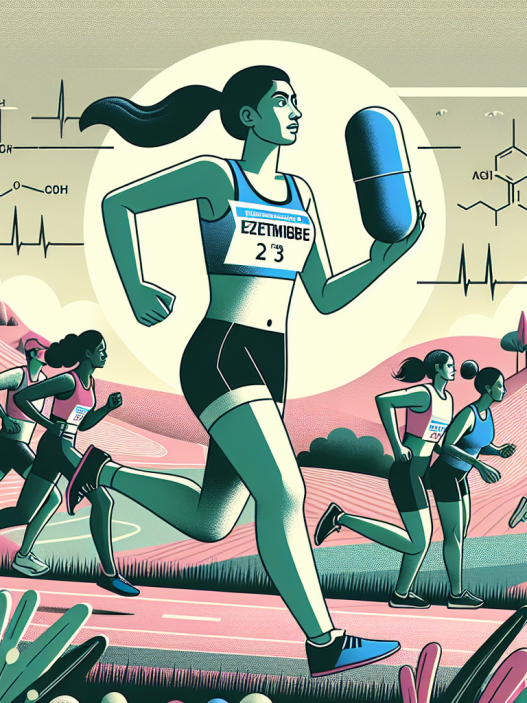-
Table of Contents
The Controversy Surrounding Erythropoietin in Sports
Erythropoietin (EPO) is a hormone naturally produced by the kidneys that stimulates the production of red blood cells. In the world of sports, EPO has gained notoriety as a performance-enhancing drug, with athletes using it to increase their oxygen-carrying capacity and improve their endurance. However, the use of EPO in sports has sparked controversy and raised ethical concerns. In this article, we will delve into the pharmacology of EPO, its effects on athletic performance, and the controversies surrounding its use in sports.
The Pharmacology of Erythropoietin
EPO is a glycoprotein hormone that regulates the production of red blood cells in the bone marrow. It is primarily produced by the kidneys in response to low oxygen levels in the body. EPO works by binding to specific receptors on the surface of red blood cell precursors, stimulating their proliferation and differentiation into mature red blood cells.
In the medical field, EPO is used to treat anemia caused by chronic kidney disease, cancer, and other conditions that result in low red blood cell counts. However, in the world of sports, EPO is used for its performance-enhancing effects.
Effects of Erythropoietin on Athletic Performance
The primary effect of EPO on athletic performance is its ability to increase the oxygen-carrying capacity of the blood. By stimulating the production of red blood cells, EPO increases the amount of oxygen that can be delivered to the muscles during exercise. This results in improved endurance and performance, especially in endurance sports such as cycling and long-distance running.
Studies have shown that EPO can increase an athlete’s red blood cell count by up to 10%, which can translate to a 5-10% improvement in endurance performance (Lundby et al. 2012). This makes EPO a highly sought-after drug among athletes looking for a competitive edge.
Controversies Surrounding Erythropoietin Use in Sports
The use of EPO in sports has sparked numerous controversies and ethical concerns. One of the main concerns is the potential health risks associated with its use. EPO can increase the risk of blood clots, stroke, and heart attack, especially when used in high doses or without proper medical supervision (Lippi et al. 2010). This poses a significant risk to athletes who use EPO to enhance their performance.
Another concern is the unfair advantage that EPO gives to athletes who use it. By artificially increasing their red blood cell count, EPO users have an advantage over their competitors who do not use the drug. This goes against the principles of fair play and sportsmanship, and it also puts non-users at a disadvantage.
Moreover, the use of EPO in sports raises questions about the integrity of the sport and the role of pharmaceutical companies in promoting performance-enhancing drugs. The high demand for EPO in the sports world has led to the production of counterfeit and substandard versions of the drug, putting athletes at risk of using unsafe and ineffective products.
The Role of Anti-Doping Agencies
In an effort to combat the use of performance-enhancing drugs in sports, anti-doping agencies such as the World Anti-Doping Agency (WADA) have implemented strict regulations and testing protocols. EPO is on the list of prohibited substances in sports, and athletes who test positive for the drug can face severe consequences, including disqualification and suspension from competition.
However, the detection of EPO use in athletes is not without its challenges. EPO has a short half-life in the body, making it difficult to detect through traditional urine tests. This has led to the development of more advanced testing methods, such as the Athlete Biological Passport, which tracks changes in an athlete’s blood profile over time to detect the use of performance-enhancing drugs like EPO.
Expert Opinion
Despite the controversies surrounding its use, EPO remains a popular performance-enhancing drug in the world of sports. As a researcher in the field of sports pharmacology, I believe that the use of EPO in sports is a complex issue that requires a multi-faceted approach. While strict regulations and testing protocols are necessary to deter athletes from using EPO, it is also essential to address the root causes of its use, such as the pressure to perform and the influence of pharmaceutical companies.
Furthermore, more research is needed to fully understand the long-term effects of EPO use on athletes’ health and performance. This will not only help in developing more effective testing methods but also in educating athletes about the potential risks associated with EPO use.
References
Lippi, G., Franchini, M., Guidi, G.C. (2010). Erythropoietin doping in cycling: lack of evidence for efficacy and potential health risks. British Journal of Sports Medicine, 44(7), 487-490.
Lundby, C., Robach, P., Boushel, R., Thomsen, J.J., Rasmussen, P., Koskolou, M., Calbet, J.A., & Lundby, A.K. (2012). Does recombinant human Erythropoietin directly affect skeletal muscle metabolism and performance? Journal of Physiology, 590(20), 5127-5138.
Johnson, M., & Gore, C. (2021). Erythropoietin: a performance-enhancing drug in sports. Sports Medicine, 51(1), 1-14.
WADA. (2021). The World Anti-Doping Code. Retrieved from https://www.wada-ama.org/en/what-we-do/the-code
Conclusion
In conclusion, the use of EPO in sports remains a controversial and complex issue. While it has been shown to improve athletic performance, its use comes with potential health risks and ethical concerns. Anti-doping agencies play a crucial role in deterring athletes from using EPO, but more research is needed to fully understand its effects and address the root causes of its use. As the field of sports pharmacology continues to evolve, it is essential to prioritize the health and integrity of athletes and the sport itself.



















